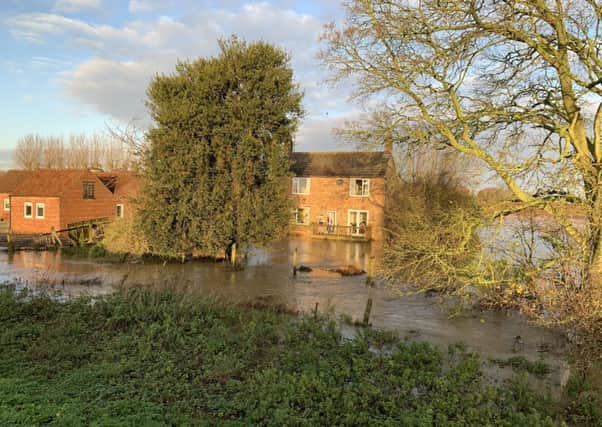Flooding is “business as usual” for Lincolnshire fire service


Agenda items before Lincolnshire County Council’s public protection committee, saw officers outline how their service had changed “significantly” – with flooding taking a higher priority.
The issue now sits at fourth in Lincolnshire Fire and Rescue’s Integrated Risk Management Plan register, while Lincolnshire Resilience Forum (LFR) has three types of flooding taking up its top three spots.
Advertisement
Hide AdAdvertisement
Hide AdMark Baxter, Lincolnshire Fire and Rescue Assistant Chief Fire Officer: “Whereas previous years they were almost single events […] now if I’m honest, that is our business as usual, so we need to ensure that we’ve got the resources, the personnel and the budget to ensure that we can respond.”
Chief fire officer Len Britzman said: “Something we were dealing with once every two or three years we’re now dealing with twice or more a year.”
Officers also outlined how they also played more of a community role – for example being involved in health and well-being call-outs and medical services. They had recently responded to help find a missing teenager.
Councillors also heard a brief report on how the LRF partners had tackled the Wainfleet floods in June 2019.
Advertisement
Hide AdAdvertisement
Hide AdHead of Emergency Planning & Business Continuity at LCC Ian Reed said: “This is becoming the new normal. Last year was the busiest year we have had for flooding.”
Mr Reed said LRF partners had, in the main received positive feedback from those affected, though acknowledged organisations such as Internal Drainage Boards and the Environment Agency had come under heavy scrutiny from residents.
He underlined lessons learnt, including having adequate plans for protracted events, as well as efforts to try to lessen the strain on staff who had worked 60-70 hours a week on top of their normal working days.
Huge community support, though welcomed, also created its own issues he said as officers tried to distribute volunteers and donations.
Advertisement
Hide AdAdvertisement
Hide AdNew methods will also help with information gathering and help prioritise vulnerable people better.
An independent report on the Wainfleet floods is due out in February following an investigation by Norfolk County Council.